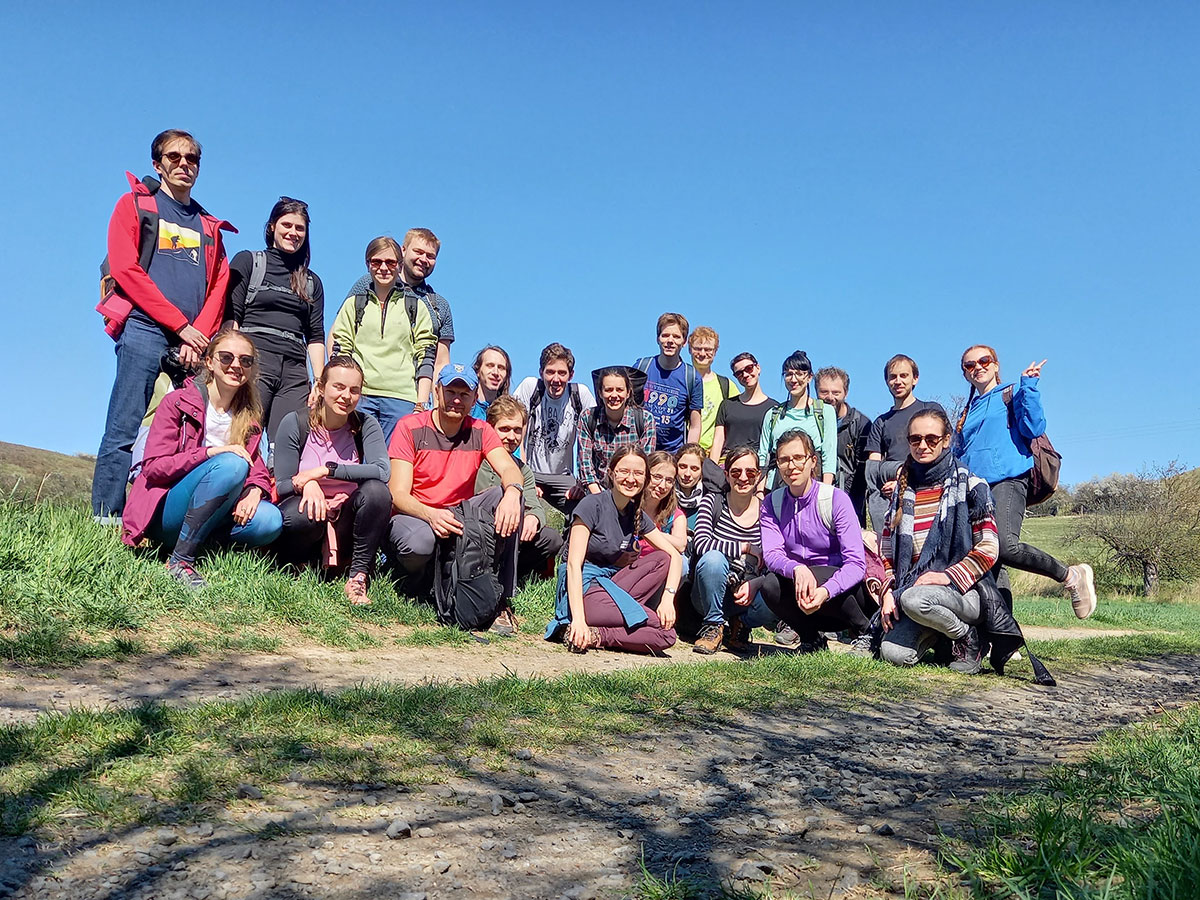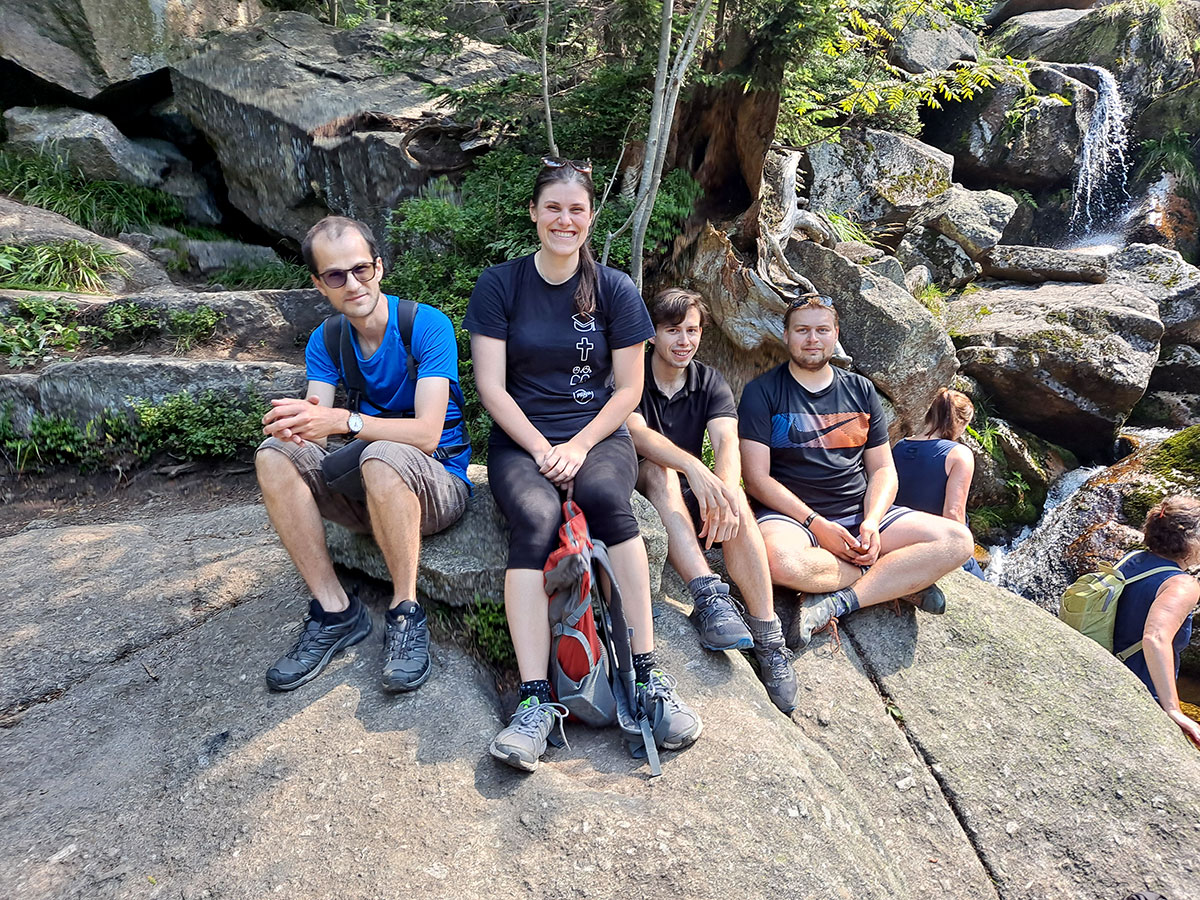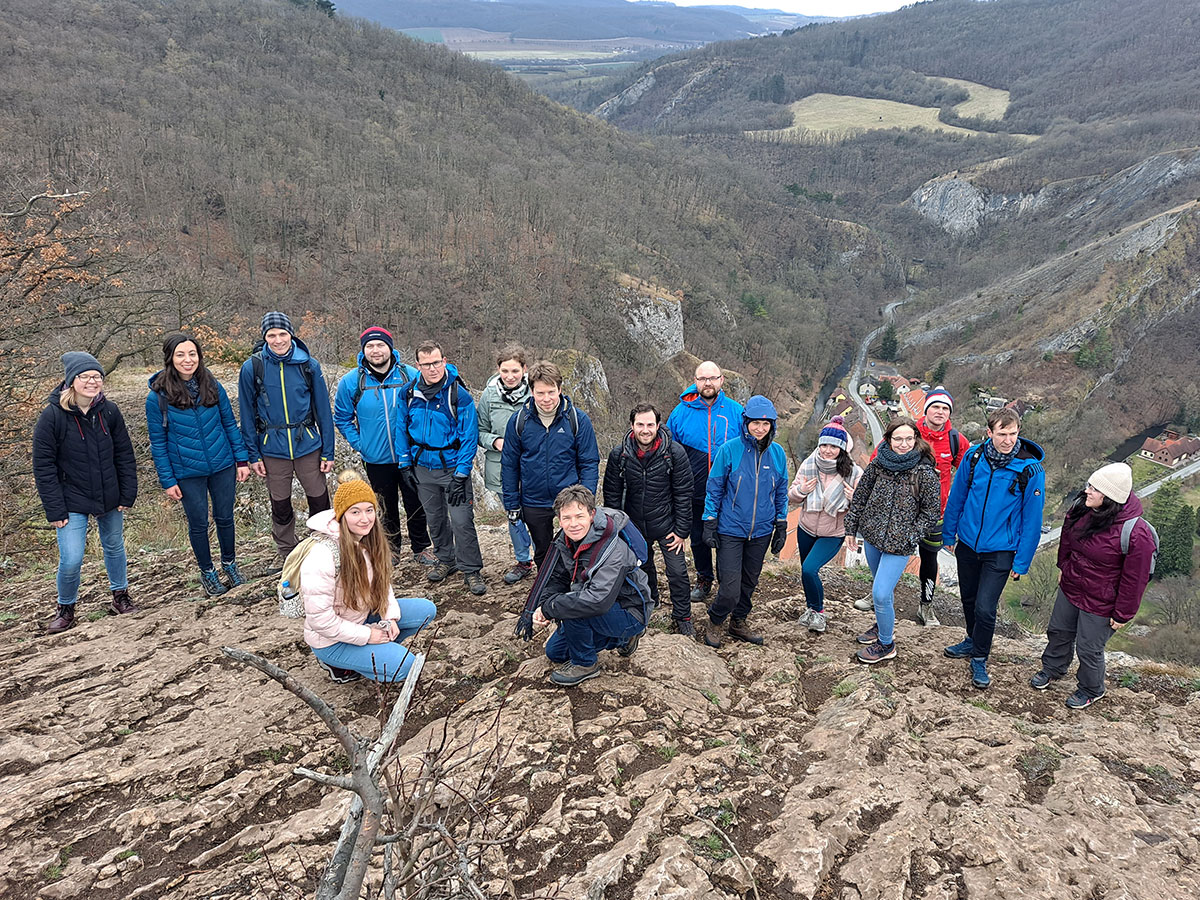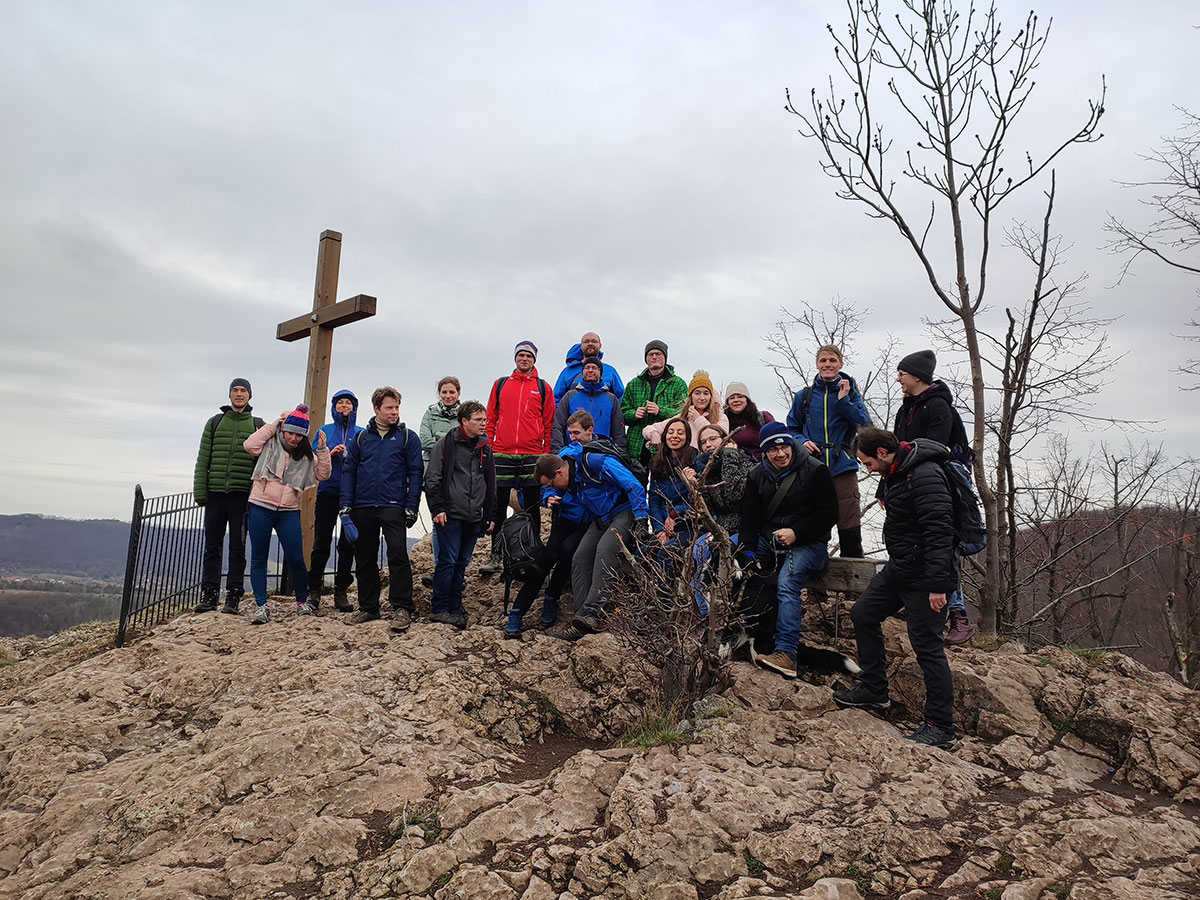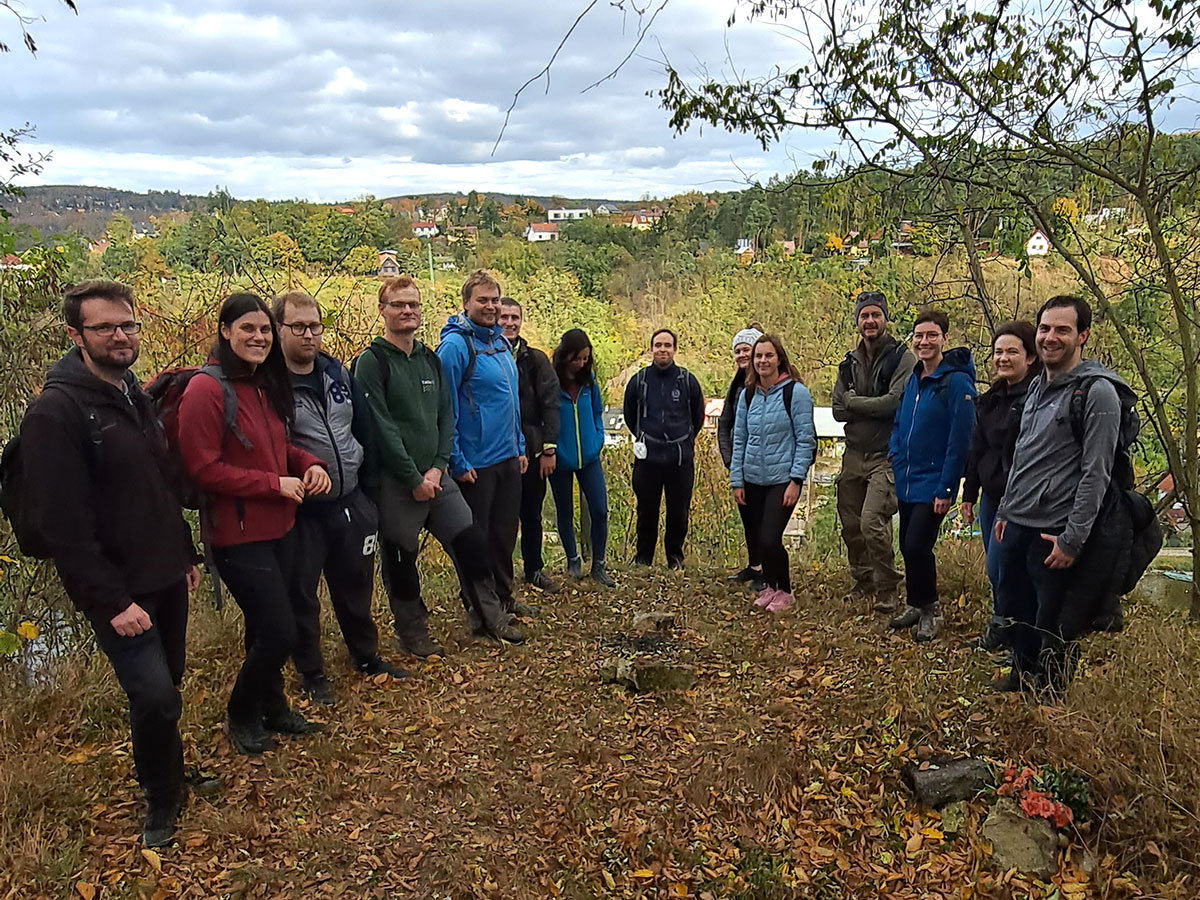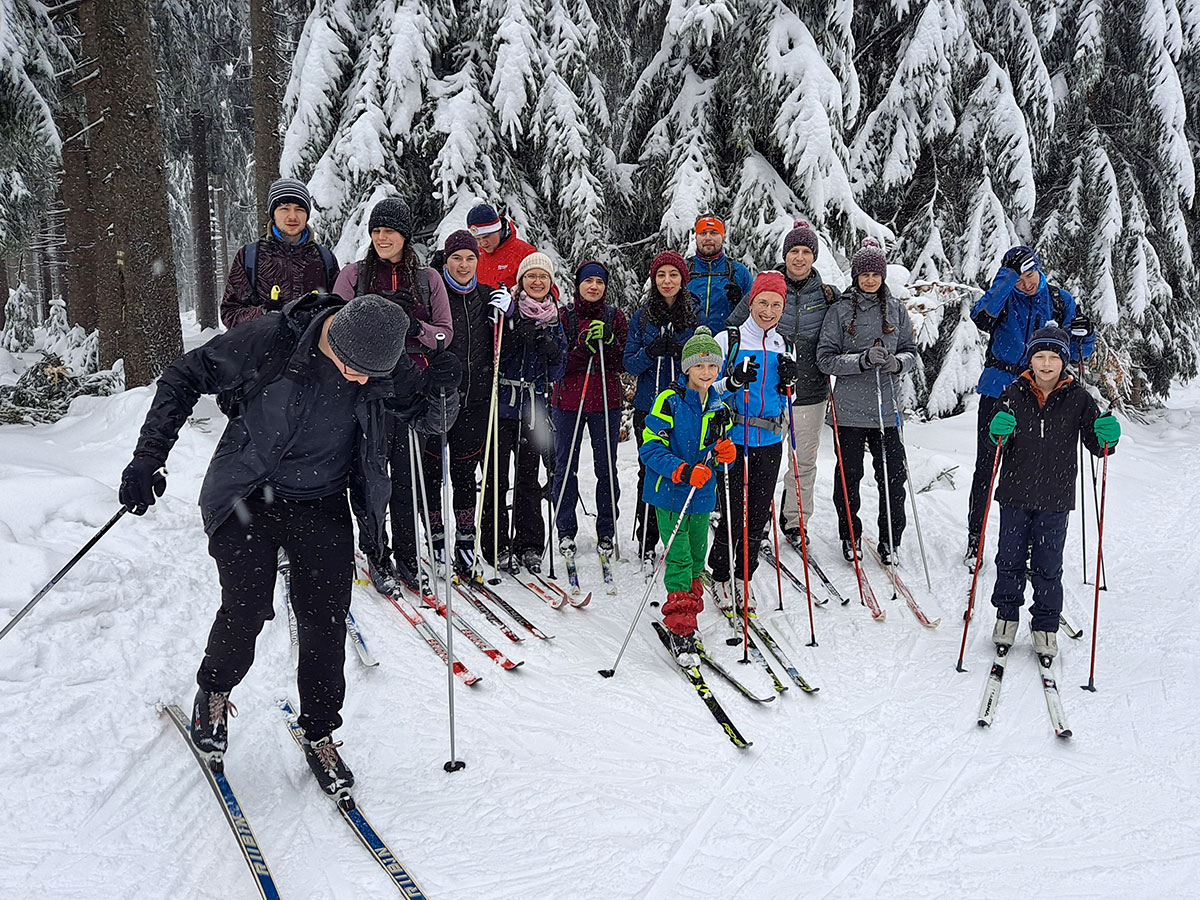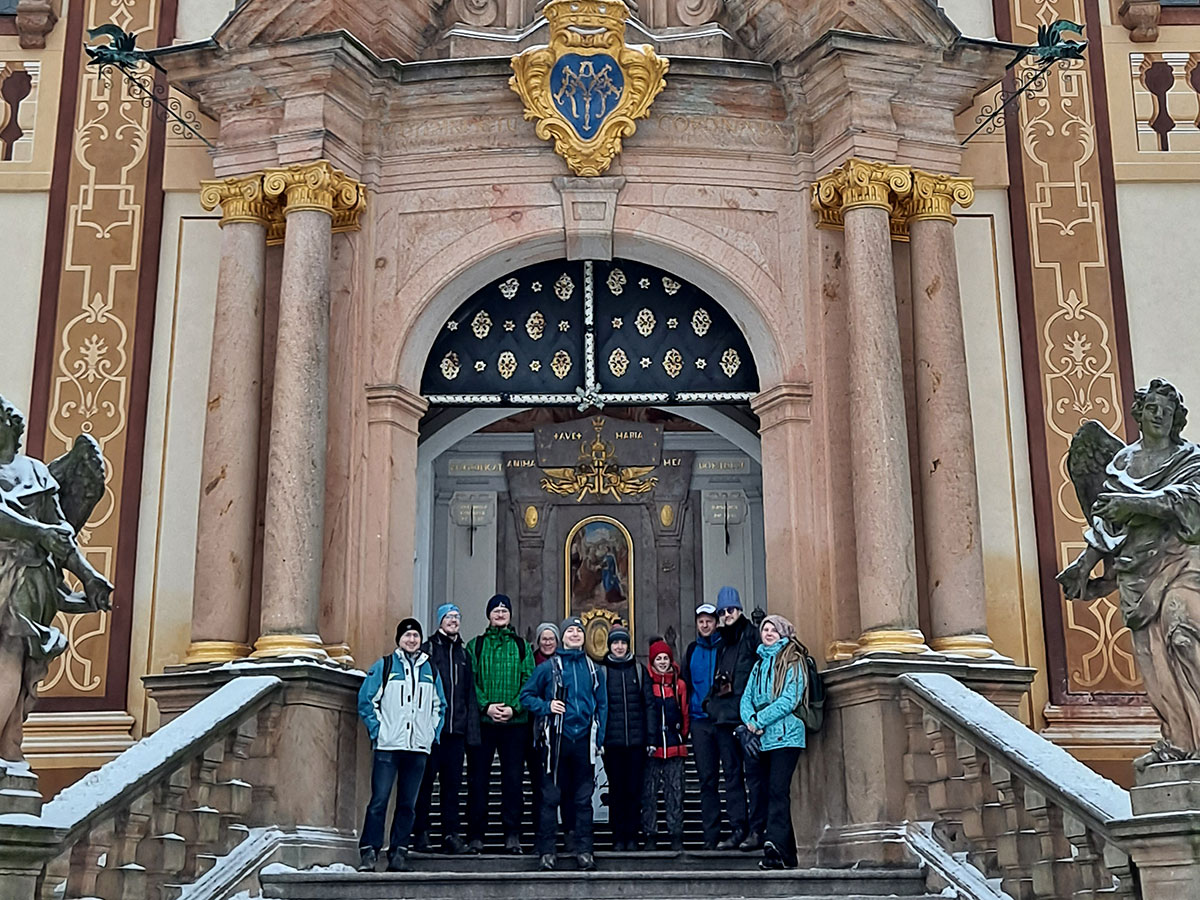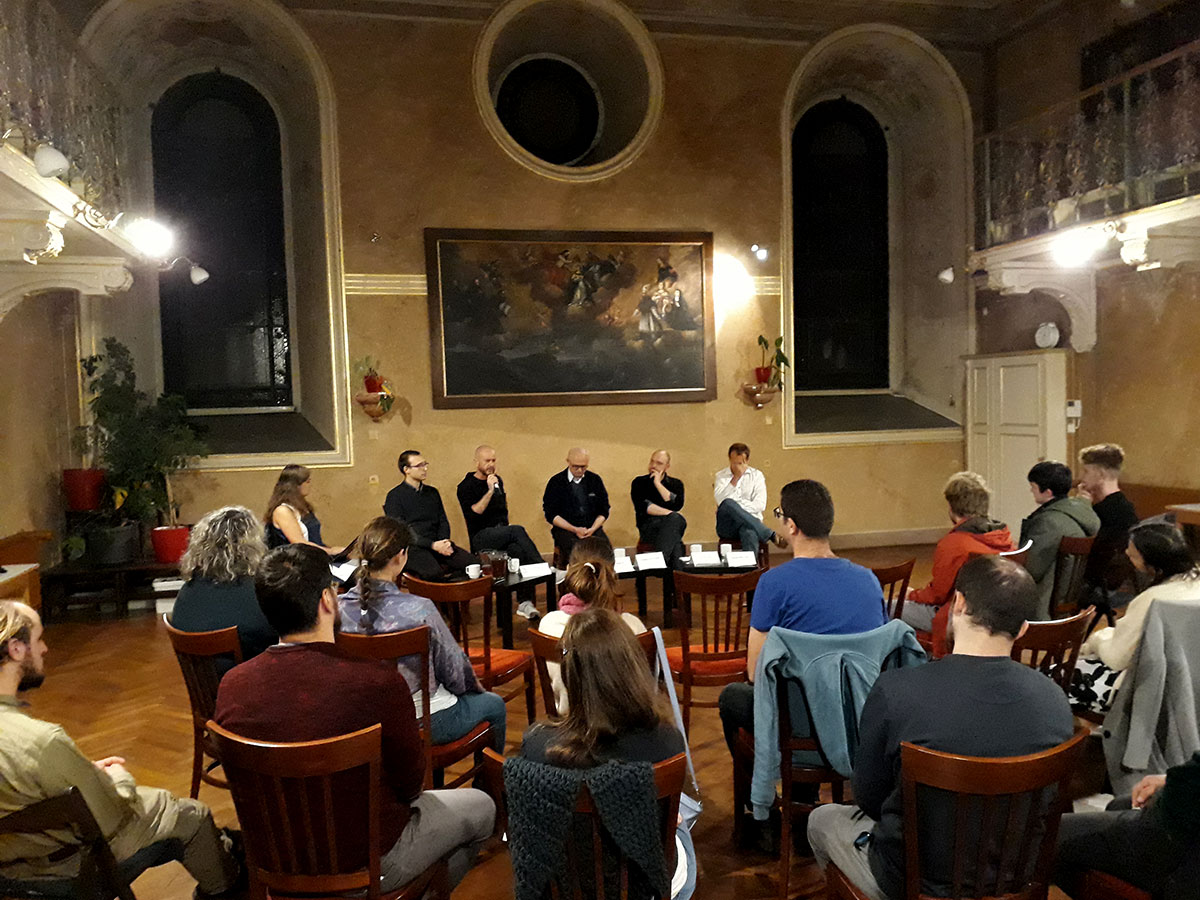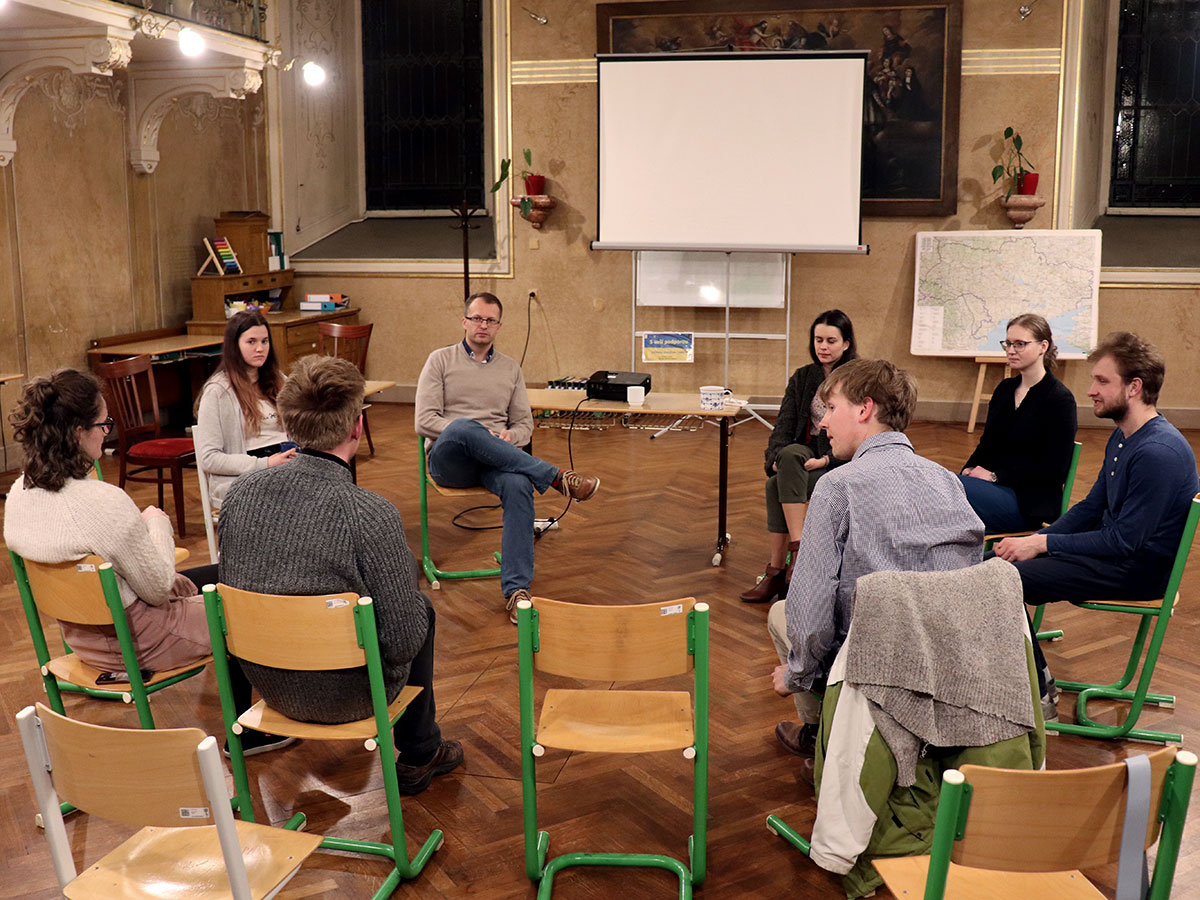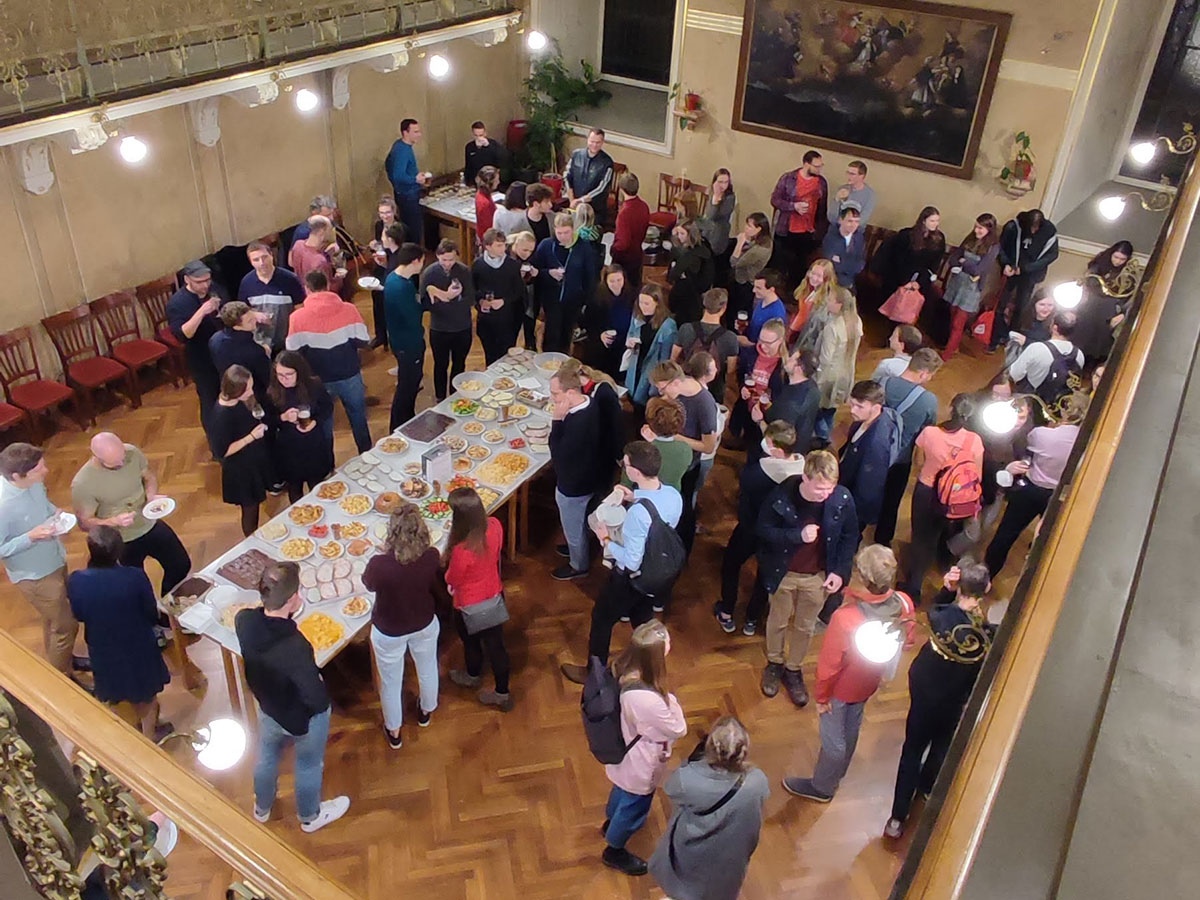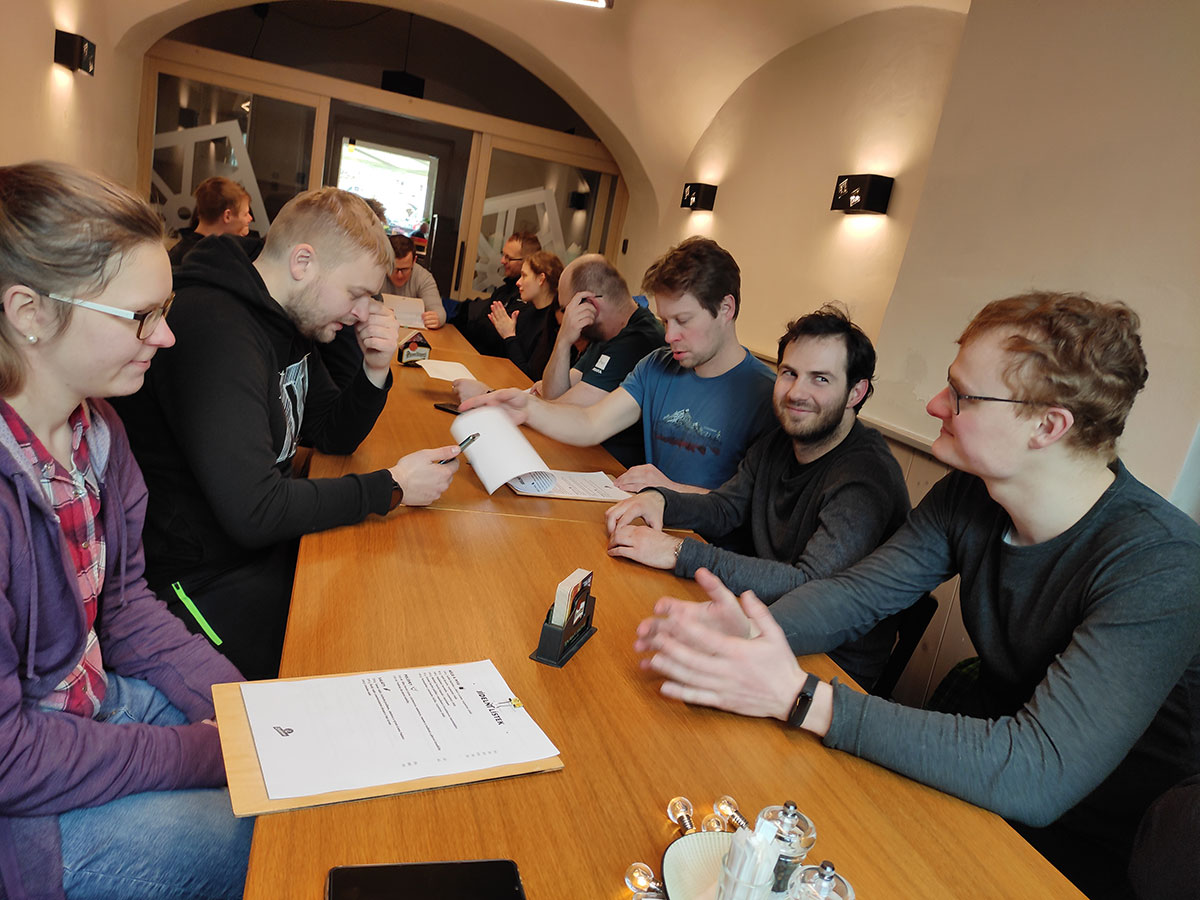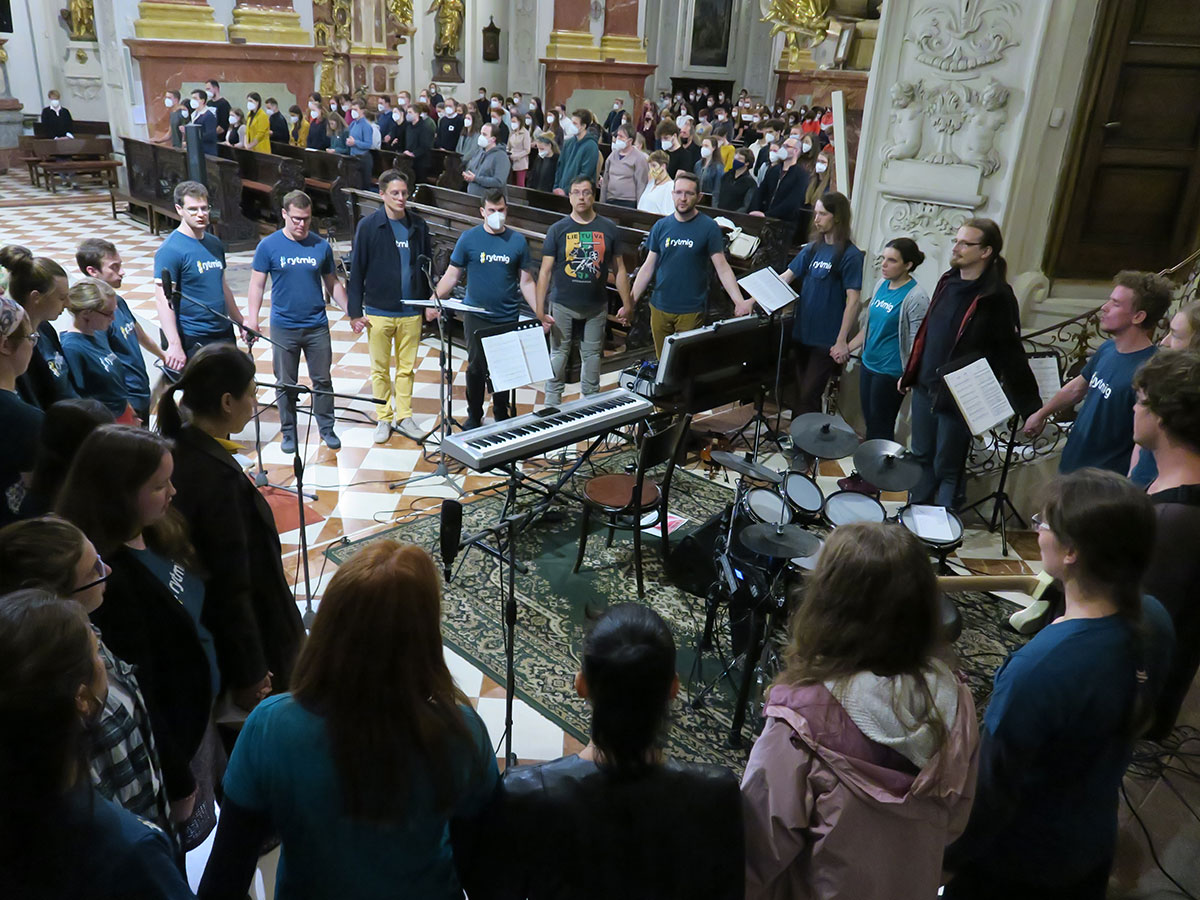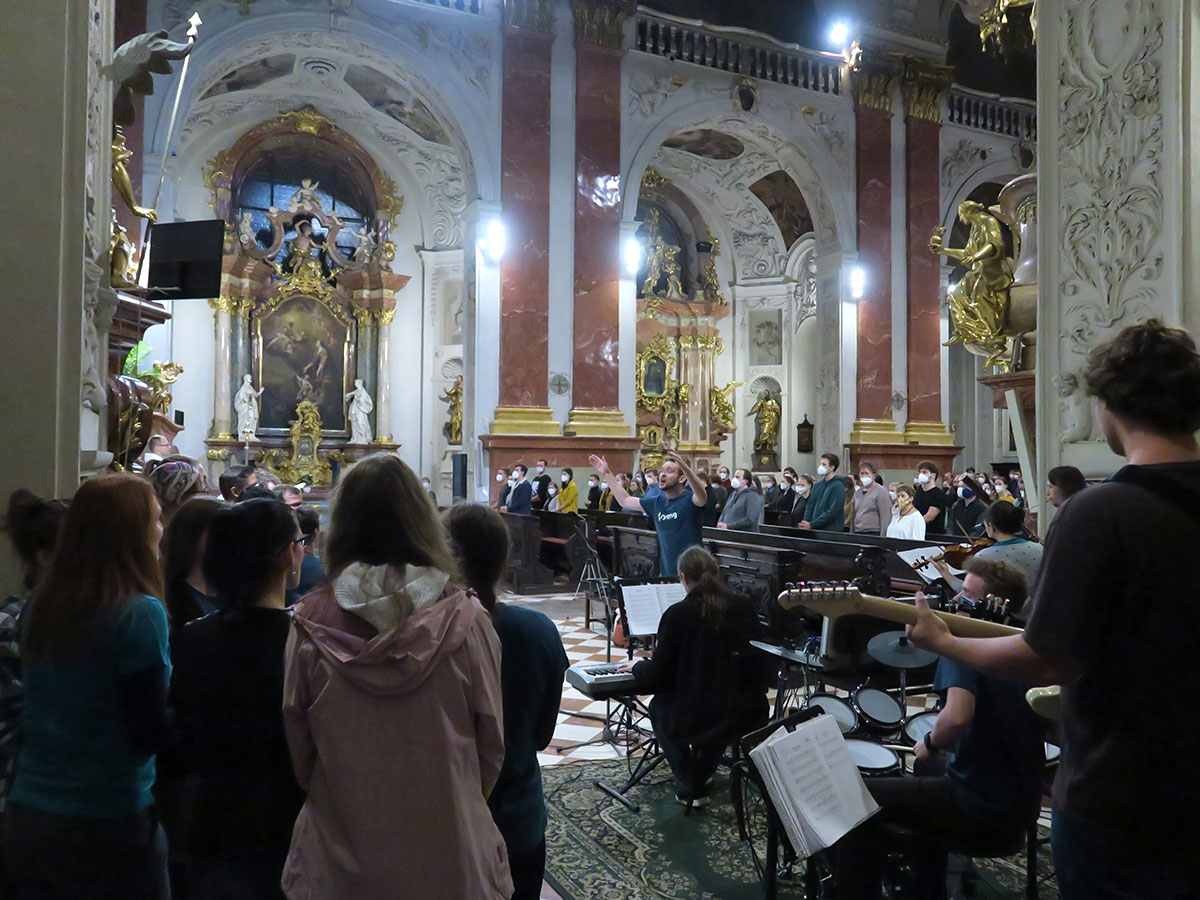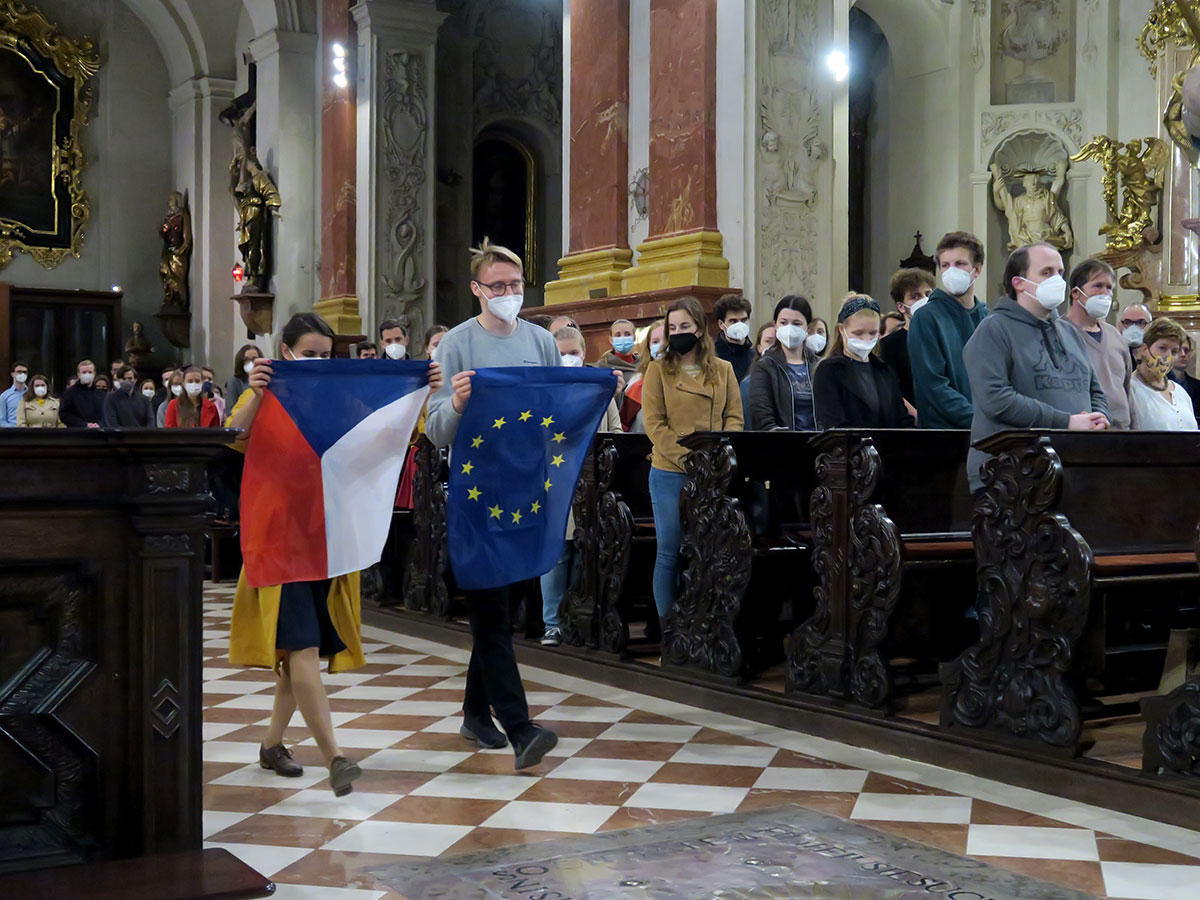Dominik found a living faith at a Jesuit parish in Prague
On the last day of his visit to the Province of Bohemia, Father General Arturo Sosa went to the Jesuits parish in Prague to celebrate the Eucharist at the Wednesday mass that usually attracts students and young adults. After mass, there was an opportunity for informal chat between Father Sosa and the congregation. Samuel Privara, the Jesuit chaplain for the university parish, and Pavel Band’ouch, a scholastic, lead the community not only through liturgies but also through Ignatian formation in spiritual life. That in addition to the multitude of cultural, recreational and sporting activities to build relationships among the congregation. At the end of this story are photos of their ministry.
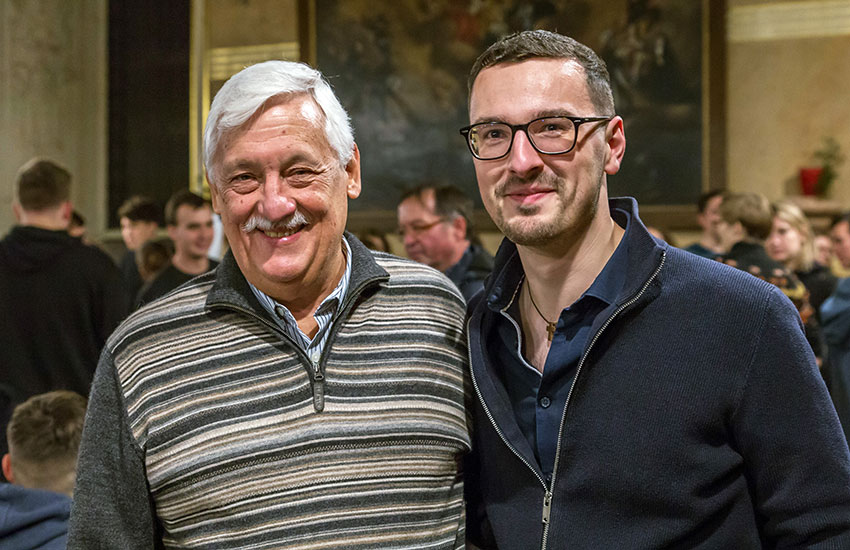
Dominik Štanbera with Father General.
Father Samuel asked a member of the community to tell us about his journey. Let’s hear from Dominik Štanbera.
I am 29 years old and live in Prague, Czech Republic. I currently work as a manager in a Czech e-commerce company and I am getting married in summer 2024.
I first met the Jesuits in college when I was 20 years old. I was studying English Language and Literature and attending student masses at the Jesuit parish. Thanks to my family, I experienced Christianity and the Catholic faith from early childhood. However, it was during the period of greater independence and freedom in my studies that I felt a deeper yearning for a more meaningful life. It was also a time when I felt a great desire to make decisions about my life on my own, without the interference of anyone else, let alone some Jesuits!
It took me another eight years before I encountered Jesuit spirituality again. After two years of the COVID pandemic, which I spent more or less working in the isolation of my home-office, I realized how single-minded my life had become and that I was thirsting for a community of people with whom I could share a living faith in God. I was able to find this in the Jesuit parish in Prague and eventually in the MAGIS program, which I joined as a working man at the age of 28.
I
had little tentative experience with the “examen” and meditations at that time.
I was very attracted to its ability to structure and systematize my perhaps
deep but often disordered spiritual and emotional experiences. I felt a great
longing for God, but had trouble translating that longing into meaningful
practice and often had trouble persisting in my efforts.
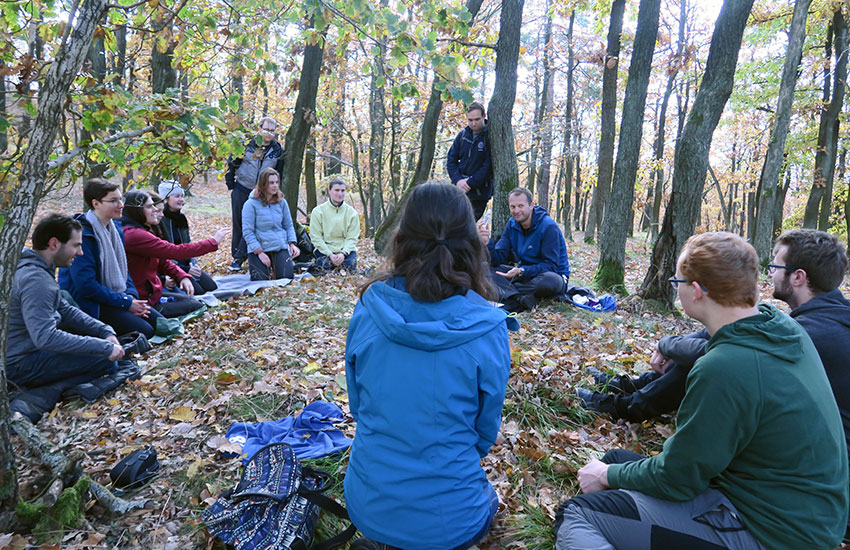
With each examen and with each new Ignatian rule on discernment, a sense of gratitude and grace welled up within me. It is as if I have received the tools to begin to transform the wild weeds within me into a fruit-bearing garden. I gradually gained deeper insight into my behaviour that has systematically led me away from God. I also owe it the opportunity to heal these patterns of behaviour and, in turn, to systematically try to open up and draw closer to God.
The MAGIS program has also been a great change in sharing my spiritual life with other people. I used to keep the topic of faith mostly to myself and didn’t let many people in. But with our group, we have been able to create an environment of trust and safety, which in itself heals not only the people themselves but also the relationships between them and their relationship with God. This experience of trust and sharing the faith helps me to live the sacrament of reconciliation more openly, without fear and in a more meaningful way.
I
am now beginning my second year in the MAGIS programme and am filled with
amazement at what I am experiencing through it and how it has changed my life.
I find it more and more enriching to hear other people in our group share what
they are living and how they are experiencing their relationship with God. And
I believe it will not stop there.
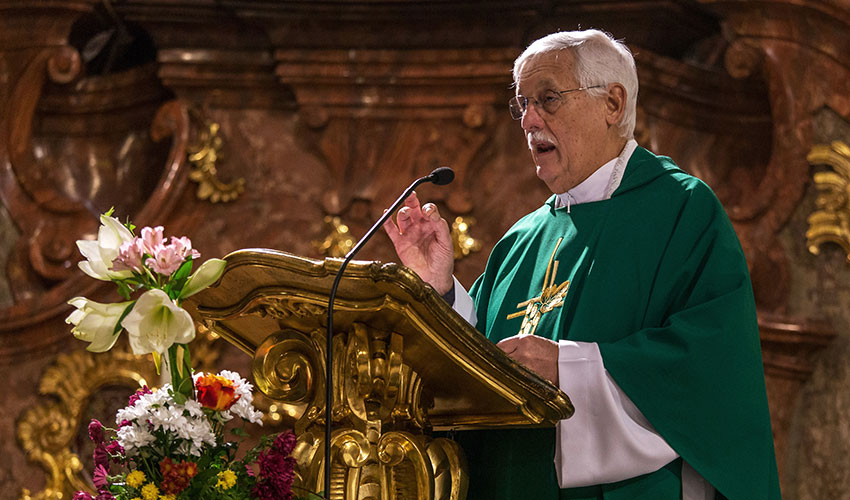
In his homily at the “Student Mass”, Father General commented on the Gospel of the day: Jesus’ encounter with the ten lepers. In a secularised context such as that of the Czech Republic, he suggested that we are all, in one way or another, lepers who can approach Jesus with confidence and who are called to obey his promptings.
“Today’s gospel tells us of a certain encounter of Jesus on the way to Jerusalem. An encounter that takes place in either Samaria or Galilee, whose inhabitants were, for the Jews, synonymous with unfaithfulness (Samaria) or far from God in their daily life (Galilee). Nevertheless, it is there that a very important encounter with ten lepers takes place. These people are not only strangers to the Jews, but also people marked by the death that is slowly consuming them.
Respecting all the rules designed to prevent infecting others, the lepers stop at a safe distance from Jesus and ask him for mercy. Jesus, however, does not heal them of their leprosy. He tells them to go and show themselves to the priest in Jerusalem. (...) It is only when they set off being obedient to Jesus’ command that they are cleansed of leprosy on the way. They are healed on the way. Their prayer is heard on the way. (...)
Looking at this encounter from today’s gospel, we can see that the healing the lepers ask for is only fulfilled when they become obedient to the word of Jesus, when they set out on a journey they could not even imagine. Let us note that Jesus himself was going to Jerusalem, so he instructed the lepers to make the same journey as he was doing himself. (...)
These
lepers are all of us, called to follow Jesus, even if we feel unable to walk in
his way. But how can we, if we are excluded, because we are lepers and sinners
like Peter (Lk 5:8)? We are cleansed by obedience to his word, which commands
us this journey. Within this we are purified. It is not that first we are
righteous and then we can follow Jesus: salvation is not a condition, but a
consequence of following. That is why we, sinners and the lost, can walk the
path of Jesus.”
